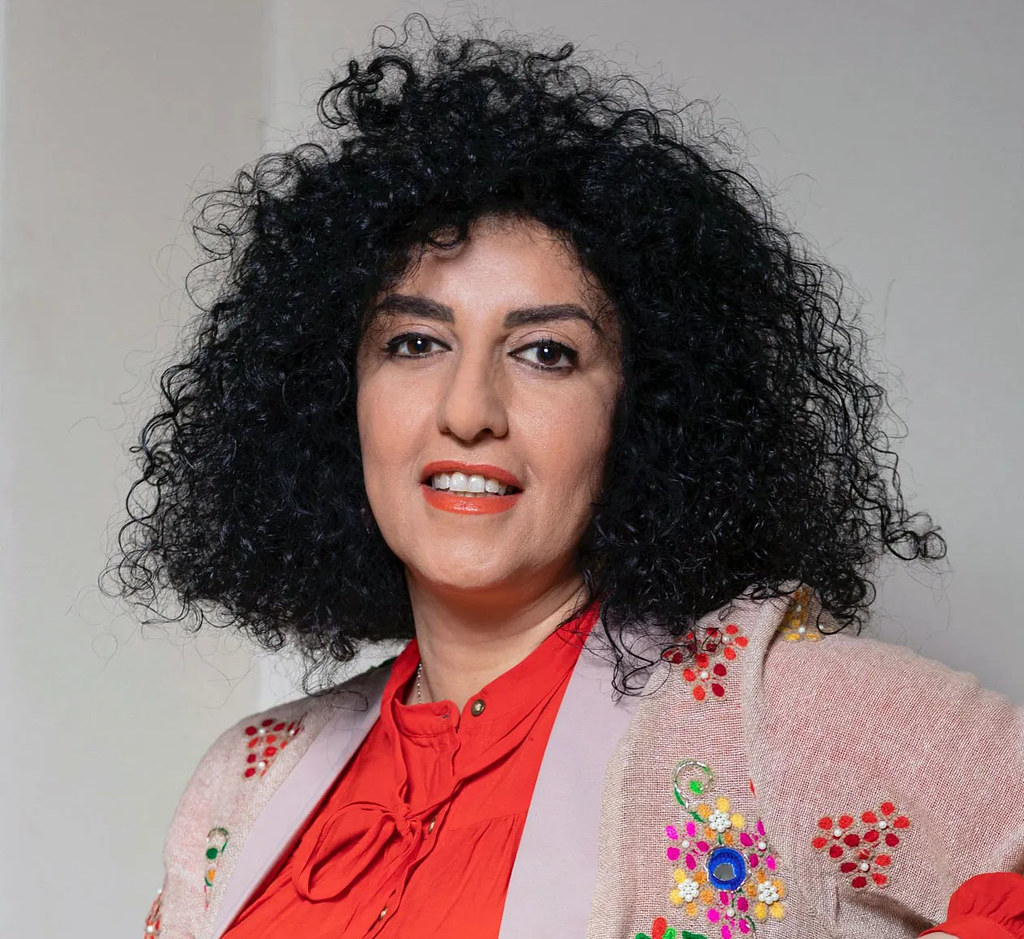Narges Mohammadi, a prominent human rights activist, has been a vocal critic of the Iranian government. Her activism, particularly her advocacy for women’s rights and opposition to the death penalty, has made her a target for the regime. Despite international recognition and accolades, including the Nobel Peace Prize, Mohammadi has endured repeated arrests, imprisonment, and mistreatment.
The imprisonment of Mohammadi has sparked widespread condemnation from governments, international organizations, and human rights advocates around the globe. Leaders from democratic nations have called for her immediate release, citing her arrest as a direct attack on the fundamental freedoms of expression and peaceful activism.
The United Nations and organizations like Amnesty International and Human Rights Watch have issued strong statements criticizing Iran’s treatment of Mohammadi and other political prisoners, underscoring systemic human rights abuses in the country. 1Protests in cities from Paris to New York have brought attention to her case, with demonstrators rallying behind her advocacy for women’s rights and opposition to the death penalty. Nobel laureates and global leaders have also joined the call, highlighting the moral imperative of holding the Iranian regime accountable for its oppressive actions.
U.S. State Department representative Vedant Patel highlighted Mohammadi’s case as emblematic of a broader pattern of repression by the Iranian regime, targeting those who dare to challenge its authoritarian policies. Her unjust detention exemplifies the government’s deep intolerance for political opposition, independent journalism, and dissenting voices.
“This is continued proof of how they treat political opponents, journalists, and dissenting voices as enemies,” Patel stated, calling for heightened global attention to the ongoing human rights violations in Iran. He emphasized the urgent need for accountability, not only for Mohammadi’s unjust treatment but for the countless other political prisoners who remain behind bars without due process.

Patel urged international organizations, allies, and human rights defenders to redouble their efforts to address these injustices and secure the release of individuals detained solely for exercising their fundamental freedoms. He called for a coordinated global response to pressure the Iranian government to end its repressive practices and uphold international human rights standards. “The international community must stand united in condemning these violations and in demanding justice for those who are wrongfully detained,” Patel urged. “We must continue to support the brave individuals who risk their lives to speak out against tyranny and oppression.”
Human rights organizations have also documented numerous cases of arbitrary detention, torture, and denial of medical care to political prisoners in Iran.2 These violations are often carried out with impunity, further emphasizing the need for stronger international pressure and accountability measures.
However, the United States itself faces criticism regarding its own record on prisoner treatment and the protection of free speech, human rights activists, and the right to peaceful assembly. Over the past year, the U.S. government has been accused of suppressing dissent, particularly concerning its stance on the Gaza conflict. Actions such as labeling criticism of the Israeli government as antisemitic, proposing bans on platforms like TikTok, and criminalizing college protests have raised concerns about the country’s commitment to the freedoms it advocates internationally.
Adding to these concerns, recent reports have emerged of inmates at Virginia’s Red Onion State Prison engaging in self-immolation to protest intolerable conditions. The Virginia Department of Corrections confirmed that at least six incarcerated individuals intentionally burned themselves using improvised devices created by tampering with electrical outlets. Advocates attribute these extreme actions to severe mistreatment, including solitary confinement and abuse by guards, highlighting systemic issues within the U.S. prison system.
The cases of Narges Mohammadi and others highlight a shared global struggle against injustice and repression. While Iran remains under scrutiny for its systemic human rights abuses, the United States and other nations must confront their own failings to maintain credibility in advocating for freedom and human rights. A united international effort, free of hypocrisy, is essential to challenging repressive regimes, defending fundamental freedoms, and fostering accountability worldwide.





